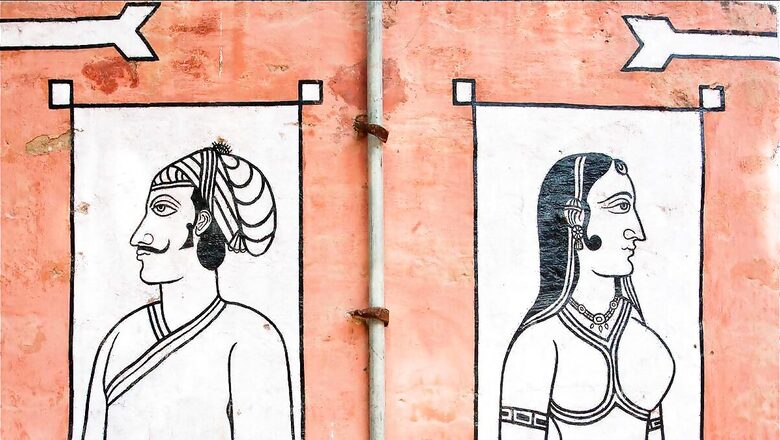
views
The Swachh Bharat Mission has created a sea change in the way we experience sanitation today – every Indian has access to a toilet. Whether we’re at our workplaces, schools or colleges, toilets are mandated by law. Even on long road trips, we now have access to toilets at not just food courts and malls, but even at toll stations and petrol pumps.
Access then, is no longer an issue. Hygiene however, still is. All of us have experienced the disappointment that comes from finding a toilet, and then realising that it’s too dirty to be used. This is not a problem of the poor or the uneducated – dirty toilets are a reality even on flights, in expensive movie theatres and restaurants.
We still have a long way to go before toilet hygiene and good sanitation practices become second nature for all Indians. We still hold on to some antiquated mindsets about toilet care. In rural areas, many still cling to the old ways and find toilets ‘unnecessary’. Communal toilet hygiene which is meant to be a collective responsibility, becomes no one’s responsibility.
Even in urban, educated families, toilet cleaning is seen as a chore to be avoided and is often outsourced to the hired help, irrespective of their education level. Often, despite our education, most of us don’t know enough about maintaining good toilet hygiene. This is a fact that India’s leading lavatory care brand, Harpic, is well aware of. Over the years, Harpic has led several campaigns that address toilet hygiene and the various small steps that families can take to ensure that their family toilets are, indeed, safe.
One of the most effective ways that Harpic is leading this conversation is in conjunction with News18 Network, through the Mission Swachhta aur Paani initiative. It is a movement that upholds the cause of inclusive sanitation where everyone has access to clean toilets. Mission Swachhta aur Paani advocates equality for all genders, abilities, castes and classes and strongly believes that clean toilets are a shared responsibility.
Battling the mindset effectively, through children
As the Sub-Group of Chief Ministers on Swachh Bharat Abhiyaan found, constructing toilets is just one half of the equation. We also need to bring about behavioural change when it comes to using toilets, and maintaining them. The Sub-Group of Chief Ministers recognised that they were succeeding with the youth – not only were young people more receptive to their message, they were also willing ambassadors of change within their families and communities.
This is reflected in the recommendations that the Sub-Group made regarding an education strategy that encompasses several key measures: including inculcating sanitation practices in children through toilet hygiene specific school curriculum from the first standard itself. They also recommended that in each school and college, a team of students called the ‘Swachhata Senani’ be formed, to spread awareness about sanitation and cleanliness.
Ambassadors of Change
Mission Swachhta aur Paani’s Swachhta ki Paathshaala initiative sees these transformations firsthand. As a part of the World Health Day event, well known actor and celebrity mom Shilpa Shetty visited the Primary School Naruar in Varanasi, to talk to children about good toilet habits, hygiene and its link to good health. The children, whose school was the recipient of the Swachh Vidyalaya prize, dazzled both Shilpa Shetty and News18’s Marya Shakil with their detailed grasp of how toilet hygiene and maintenance directly impacts health outcomes and productivity.
One child also shared a heartwarming anecdote where he recounted to Marya that after the school program was implemented, he talked his family into building their own toilet. Of course, he is not the only one. As a part of Mission Swachhta aur Paani, the teams from Harpic and News18 have come across several such stories that show us that mindsets are changing.
It also eloquently makes the point that when we want to change attitudes, the youth are our best bet. Children who grow up with toilets don’t go back to the old ways, and are the most effective agents of change we could ask for. As the Mission Swachhta aur Paani slogan goes, Healthy Hum, Jab Saaf Rakhein Toilets Har Dum.
Swacchta ki Paathshaalas have only just begun to scratch the surface. As we see more and more schools adopt this programme, we can expect to see the same gains multiplied all over the nation. With young children leading the change we want to see, we’re not far from a time when Indians from all over the country are conversant in good toilet hygiene and sanitation practices.
As the Swachhta ki Paathshaala teaches, apne peeche dekho: Are you leaving the toilet as clean as you found it? If each of us takes care of the next person in line, we all get to use a clean toilet. As Ravi Bhatnagar, Director, External Affairs & Partnerships, SOA, Reckitt said so eloquently, “Sabka saath, sabka vikaas tabhi hoga, jab sabka prayaas bhi hoga.”
This is the mindset we need to bring about a Swachh Bharat, and a Swasth Bharat. Join us here, at Mission Swachhta aur Paani’s special event for World Health Day, to learn about the many ways India is changing its mind and mindset about toilet hygiene.
Read all the Latest News here

















Comments
0 comment